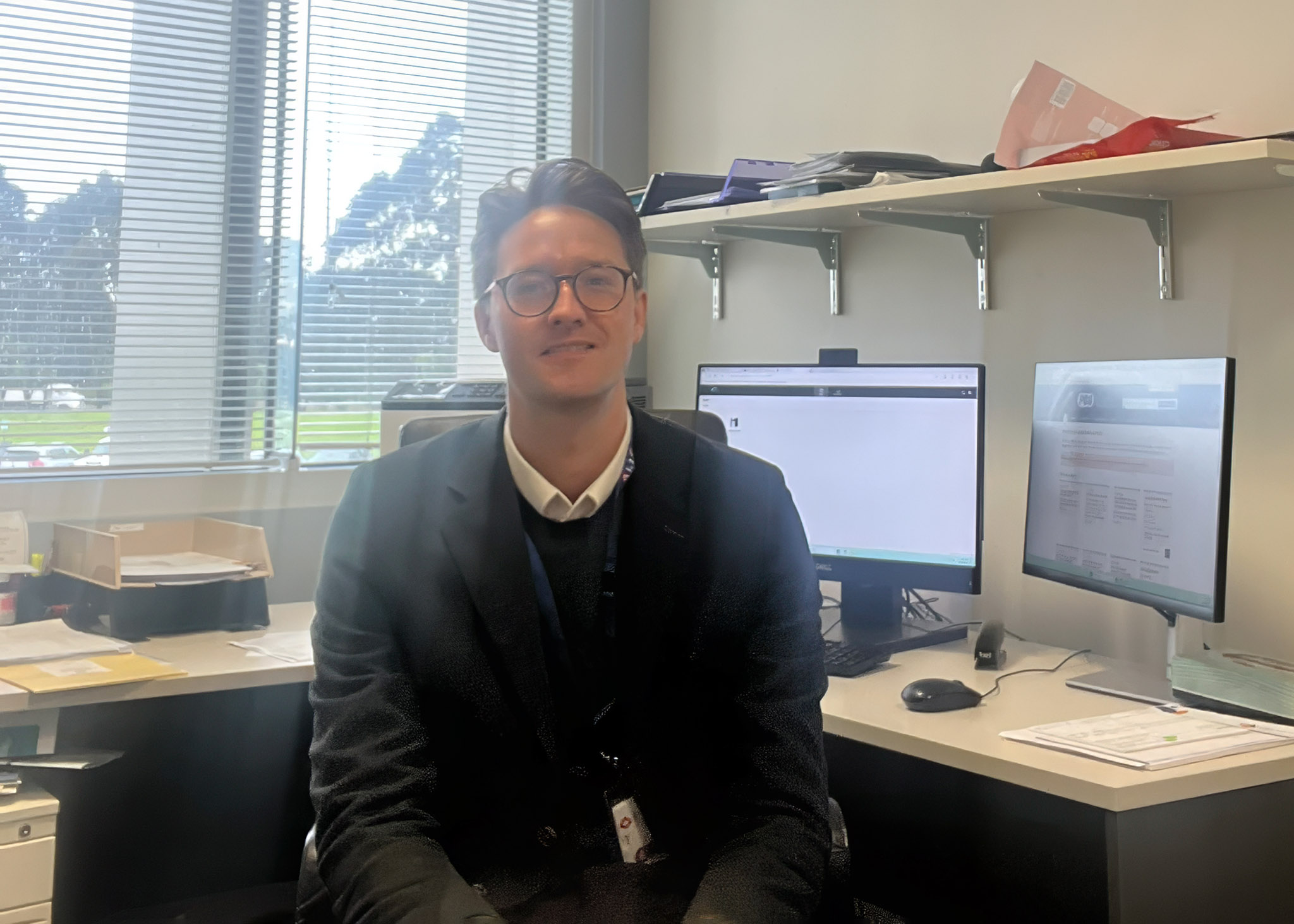Acute Myeloid Leukaemia relapse after bone marrow transplant

“When someone has acute myeloid leukaemia, nothing else matters. If we don’t fix the leukaemia, well… nothing else will be a problem for much longer either.”
That’s Michael Ashby, our newest PhD Scholarship recipient, doctor, researcher, father of three, marathon runner, and not one to mince words.
But he’s right: if the underlying disease isn’t dealt with — especially when that disease is acute myeloid leukaemia (AML) — then not much else is of any consequence. That’s why Michael is drawn to translational research, work that aims to produce results that are directly applicable to patients and their team of haematologists, oncologists and specialist nurses to bring about improved treatment regimes and, ultimately, better outcomes for patients long term.
An overview of Michael’s research in layman’s terms
Michael’s research is focused on relapse in patients who have had a bone marrow transplant to treat acute myeloid leukaemia. There are two main reasons for relapse:
- The drugs given after transplant to help manage graft v. host disease and to allow the donor cells take hold (engraft) may allow some diseased cells to linger, and
- some diseased cells may develop a way to evade the new immune system and then re-establish themselves in the patient.
Michael’s study aims to find ways to prevent relapse after transplant. The first part of his project has seen him delve into a bank of tissue samples collected from a previous clinical trial to compare two methods of post-transplant treatment. His aim was to see how these two methods impact the ability of newly established immune cells to find and destroy leukaemia cells.
Secondly, he will look into the processes by which leukaemia cells develop ways to escape the new immune system. He hopes to be able to develop lab tests to determine what mechanism is at work at a cellular level that is leading to relapse, so that a more targeted response can be developed for patients, rather than the current ‘one size fits all’ approach.
And thirdly, Michael hopes to then establish a clinical trial of new post-transplant maintenance regimes.
What drew Michael to haematology and translational research in the first place?
When we asked Michael why he chose this line of work, he said that he has always been drawn to high impact disease. Most people with that kind of calling would naturally find themselves in emergency, but not Michael. He’s not into the drama of acute care, where it’s quick life and death decisions. Instead he prefers the world of blood cancer care where it’s still high impact, still life and death, but without the hectic pace of acute care. Michael finds fulfillment in the relationships he develops with his patients and their families.
“Being with patients through the biggest challenge of their lives is rewarding,” he says. “It’s important that patients are really informed about their treatment decisions. And it’s a whole team approach. My role as a doctor is to take a dispassionate look at all the treatment options available and to advise my patients of their options and the likely outcomes from each, but let’s be frank: many of the options are tough going. And that’s where the rest of the incredibly dedicated team comes in, the nurses, the dietitians, the physios, the psychologists and social workers, as well as support from family. Everyone needs to work together for the best outcomes for patients.”
It’s exactly that attitude and the dedication to his work that makes us proud to support Michael in his PhD candidature, and we wish him well over the next few years of research.
We would also like thank the Haematology Society of Australia and New Zealand as well as the Hawkesbury Canoe Classic, and all the paddlers and volunteers who contribute to the event for their fundraising efforts to help support our PhD scholarship program.
